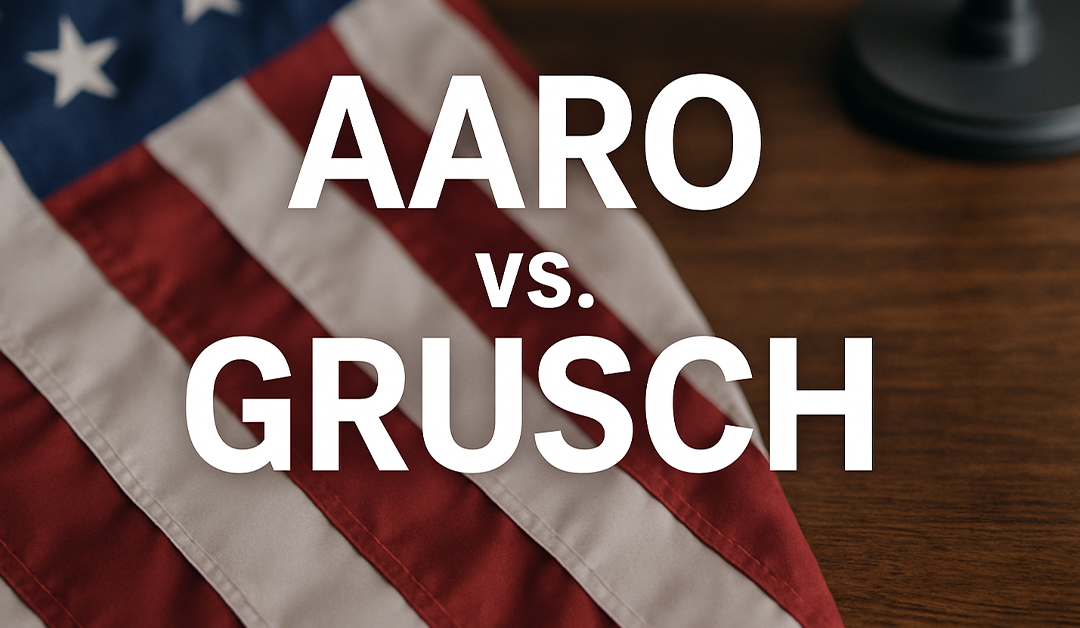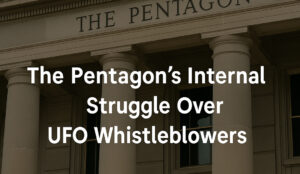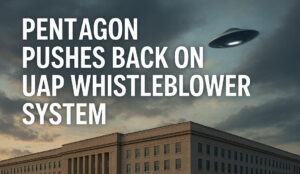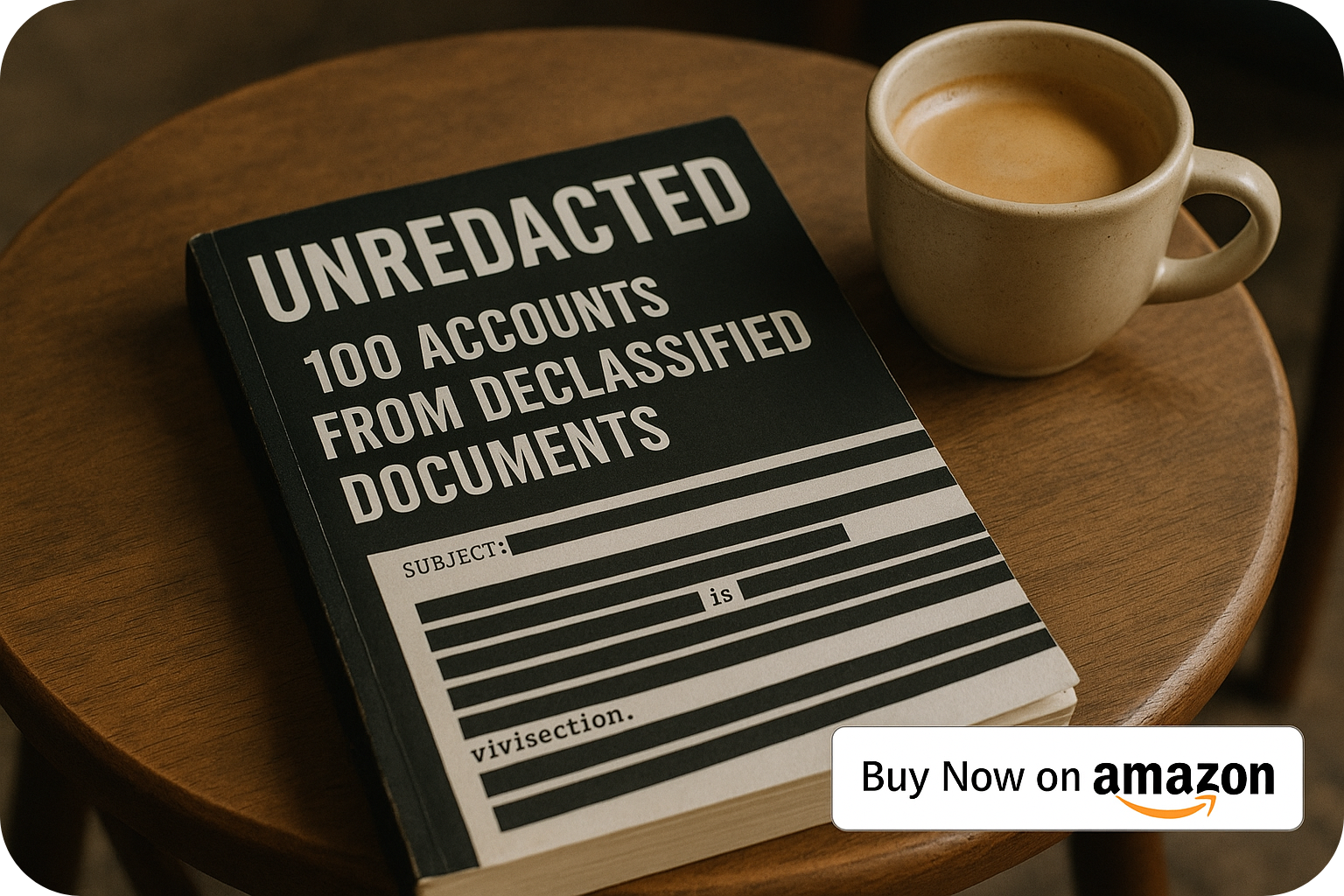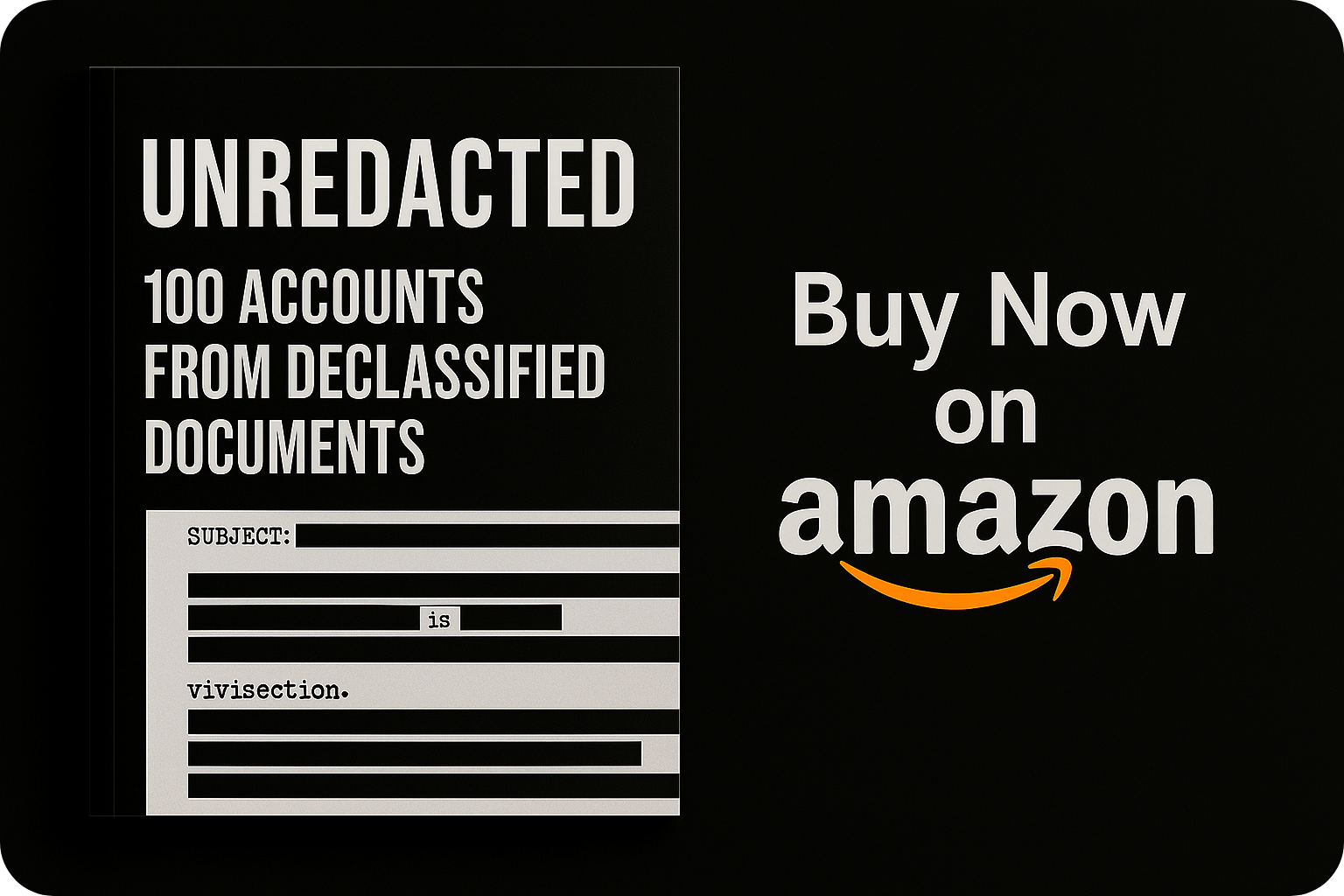Newly released documents reveal a months-long tug-of-war between David Grusch and the All-domain Anomaly Resolution Office over access, authority, and trust.
"I’ve been waiting in the lobby over 30 minutes. Are you showing up?"
- David Grusch, November 14, 2023
For months, the U.S. government’s official Unidentified Anomalous Phenomena (UAP) investigation arm-known as AARO-has been attempting to formally interview David Grusch, the high-profile whistleblower who shook Washington with his claims that the U.S. government possesses and has hidden non-human craft.
But according to a newly released FOIA document dated January 2024, Grusch has consistently declined to meet with AARO, citing ongoing legal concerns, skepticism about AARO’s authority, and unresolved security policy issues.
The document-a formal internal memorandum from the Department of Defense-lays out a detailed chronology of the efforts to secure Grusch’s testimony, painting a picture of bureaucratic confusion, mistrust, and strained communication.
📆 Timeline of Attempts
Between June 2023 and January 2024, AARO’s Director and staff reached out multiple times to Grusch-directly, through Senate Intelligence Committee staffers, and even through personal associates-offering secure, confidential settings for an oral history interview as part of AARO’s Congressionally mandated historical record project.
Each time, Grusch declined or failed to appear.
He later justified his absence by saying he remained unconvinced that AARO had the legal authority to receive information protected under waived special access programs (SAPs) or compartmented intelligence (CAP).
"The law may grant your office need-to-know," Grusch wrote, "but it does not establish policies and procedures with various data owners."
🧾 What the Pentagon Says
The DoD document includes official memos from both the Special Access Programs Central Office and the Director of National Intelligence, explicitly stating that AARO is authorized to receive any UAP-related information, no matter the classification, compartment, or nondisclosure agreement.
"There is no restriction to AARO receiving any past or present UAP-related information." - DoD Authorization Memo, 2023
These assurances, however, were not enough for Grusch.
🔐 The Security Concerns
As a former Special Access Program Control Officer (SAPCO), Grusch emphasized that many UAP-related programs are housed within security architectures that are not easily disentangled from other, conventional black programs. Revealing one could unintentionally expose the other.
He demanded written confirmation from:
- ODNI’s Controlled Access Programs Office (CAPCO)
- CIA Office of Security
- NSC and DOE SAP program authorities
He also requested that any future interview be conducted at HCS-Operations (RH) level classification-among the most restricted handling channels available within the U.S. intelligence community.
AARO offered to meet in a secure facility but could not meet every condition Grusch demanded.
🧠 A Clash of Interpretation
At the heart of the impasse is a legal and bureaucratic standoff:
- AARO says it is authorized by law to receive all information.
- Grusch says authorization is not access-and that proper clearances and procedures must be shown in writing from each relevant authority.
In effect, both parties are claiming good-faith compliance, yet the result is gridlock.
Chris Mellon, former Deputy Assistant Secretary of Defense for Intelligence, attempted to mediate between the two. His messages, included in the release, show a tone of frustration as he tries to bridge the trust gap.
"I think you have a fascinating and important job and I want nothing more than to see the process work," Mellon told AARO’s Director.
"Please don’t think I am out to make your job harder."
⚖️ The Political Undertone
Grusch’s reluctance appears to be more than procedural.
In communications reviewed in the document, Grusch reportedly questioned the motives of AARO leadership and even hinted that AARO itself may be compromised or under investigation-possibly as part of his criminal whistleblower complaint submitted to the Intelligence Community Inspector General.
AARO, meanwhile, expressed increasing exasperation, noting that every official memo had been provided, and even offered to bring the interview to Grusch if he didn’t want to come to their facility.
"His continued refusal to speak with us only hurts his case," one message from AARO reads bluntly.
"We have many people come share appropriately the information they have from various places."
🧩 Where Things Stand
As of January 8, 2024, AARO has declared that Grusch has no intention of cooperating. He missed a scheduled in-person interview and rejected additional offers even after legal clarifications were made.
It’s a deeply ironic outcome: the office established by Congress specifically to hear testimony like Grusch’s now finds itself sidelined by the very whistleblower it was designed to protect.
While the reasons are complex, one thing is clear:
The David Grusch vs. AARO impasse is not just a breakdown of communication-it’s a failure of coordination at the heart of the U.S. government’s attempt to confront the UAP mystery.

